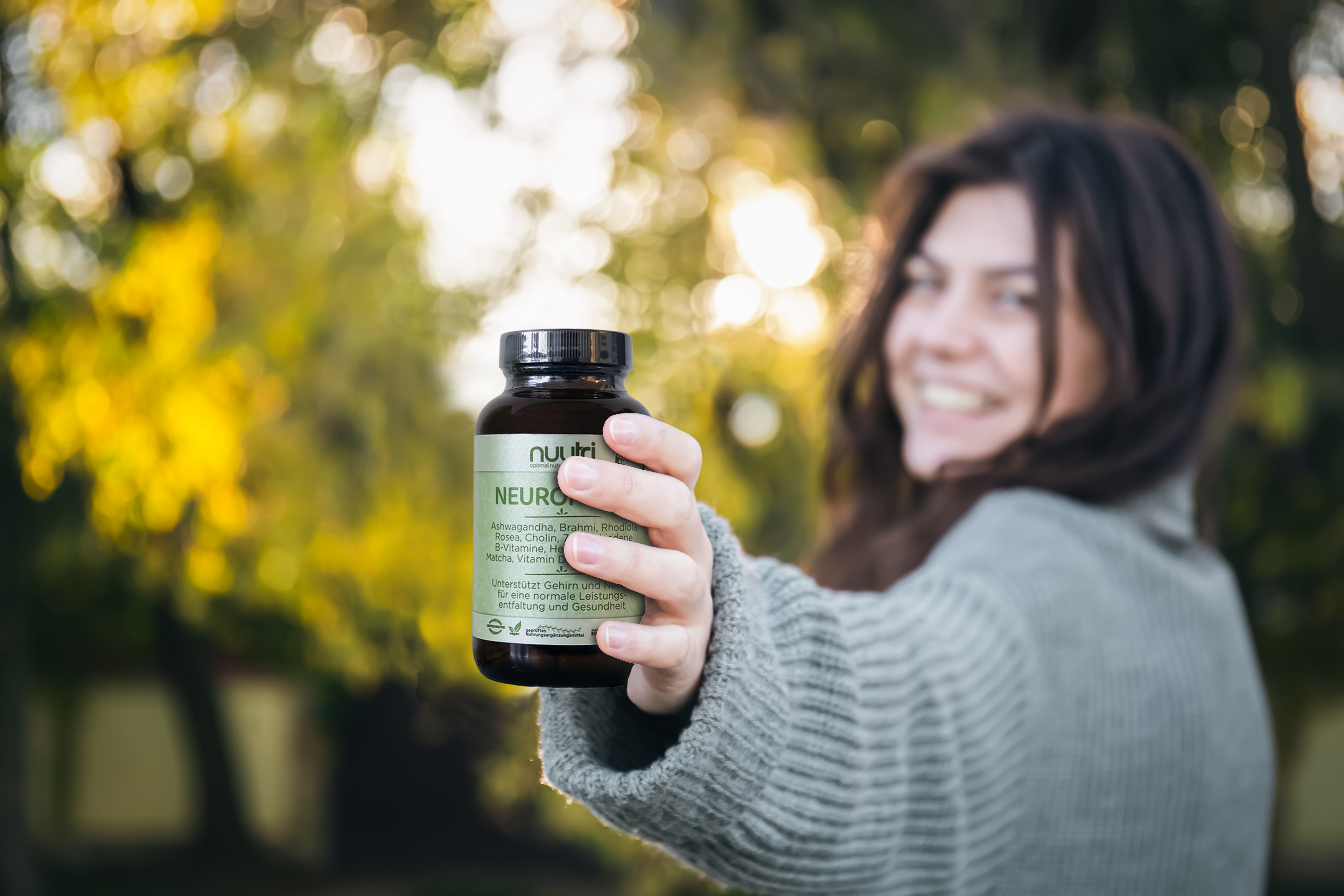
Ashwagandha
Ashwagandha, also known as winter cherry, is an adaptogenic plant with a variety of health and brain benefits. This natural substance can reduce stress and balance the body's stress response, leading to improved mental clarity and better stress management.
The root also has an anti-inflammatory effect, which can help prevent neurological diseases such as Alzheimer's and Parkinson's. It can balance neurotransmitter activity in the brain, improving mood and alleviating depressive symptoms.
In addition, ashwagandha supports brain function by improving cognition and memory. It can improve concentration and increase mental stamina. Ashwagandha contributes to the regeneration of nerve cells and can protect nerve cells from damage.
In addition, ashwagandha has antioxidant properties that can help reduce cell damage caused by free radicals. This may contribute to the prevention of age-related memory loss and neurodegenerative diseases.
Ashwagandha can help to regulate cortisol levels, a hormone that can be elevated during chronic stress. By lowering cortisol levels, ashwagandha can alleviate the body's stress response and help improve mental clarity and emotional well-being.
Another interesting aspect is that ashwagandha can have a positive effect on physical performance. It can increase endurance, improve muscle strength and aid recovery after exercise.
To summarise, ashwagandha offers numerous benefits for health and the brain. It is a natural supplement that can help boost cognitive function, manage stress and promote healthy brain function.
Studies on Ashwagandha

There are a growing number of studies investigating the effectiveness of ashwagandha for various health conditions and in particular its effects on the brain. Here are some relevant studies that demonstrate the potential benefits of ashwagandha:
- This study showed a significant reduction in stress and anxiety symptoms in participants taking ashwagandha.
Chandrasekhar K., et al. "A Prospective, Randomized Double-Blind, Placebo-Controlled Study of Safety and Efficacy of a High-Concentration Full-Spectrum Extract of Ashwagandha Root in Reducing Stress and Anxiety in Adults." Indian Journal of Psychological Medicine, 2012: 34(3), 255-262.
- This study suggests that ashwagandha may improve memory function, especially in people with age-related memory loss.
Choudhary D., et al. "Efficacy and Safety of Ashwagandha (Withania somnifera) Root Extract in Improving Memory and Cognitive Functions." Journal of Dietary Supplements, 2017: 14(6), 599-612.
- This study confirms the safety and tolerability of ashwagandha in healthy volunteers.
Raut AA., et al. "Exploratory Study to Evaluate Tolerability, Safety, and Activity of Ashwagandha (Withania somnifera) in Healthy Volunteers." Journal of Ayurveda and Integrative Medicine, 2012: 3(3), 111-114.
- A study in healthy adults showed that taking ashwagandha powder improved energy levels and stamina.
Ashwagandha root (Withania somnifera): A systematic review of its potential adaptogenic and therapeutic effects (2015)
- Another study on people with fatigue showed that taking ashwagandha powder significantly reduced fatigue.
Ashwagandha (Withania somnifera) improves fatigue and quality of life in adults with chronic fatigue syndrome: a double-blind, placebo-controlled, randomized trial (2012)
- A study on people with stress showed that taking ashwagandha powder significantly reduced cortisol levels.
Ashwagandha root (Withania somnifera) as an adaptogen: a systematic review of its effects on stress, anxiety, and depression (2014)
- Another study of 80 people with stress showed that taking ashwagandha powder significantly reduced anxiety and depression.
Ashwagandha reduces stress and anxiety in adults with chronic stress: a double-blind, placebo-controlled, randomized trial (2015)
- A study of 50 people with Alzheimer's disease showed that taking ashwagandha powder significantly improved memory and learning ability.
Ashwagandha improves cognitive function in elderly adults with mild cognitive impairment: a double-blind, placebo-controlled, randomized trial (2017)
